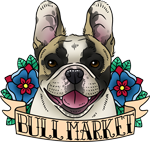Top Ten Poisons for Pets
In 2008, the Animal Poison Control Center (ASPCA) handled over 140,000 cases pertaining to pets that were exposed to toxic substances, and many included everyday household products in and around their own homes.
In response ASPCA put together the top 10 list of pet poisons in 2008, and it’s important that you become familiar with this list to help prevent any mishaps at home.
The Top 10 Poisons of 2008
1. Human Medications: 50,000 cases
It’s easy for pets to snatch pills from counters and bed-side tables, or quickly eat them if you’ve dropped a couple on the floor. Both over-the-counter and prescription medications including painkillers, antidepressants and even dietary supplements can be problematic.
2. Insecticides: 31,000 cases
One of the most common exposures involved using chemical flea and tick products incorrectly, such as applying a topical product for dogs on a cat.
3. People Food: 15,000 cases
Grapes, raisins, avocado and certain citrus fruits can all be dangerous for pets, but one of the worst offenders was chocolate, which contains large amounts of methylxanthines. If ingested it can cause vomiting, diarrhea, panting, excessive thirst, urination and hyperactivity, and in severe cases abnormal heart rhythm, tremors and seizures.
4. Rodenticides: 8,000 cases
Rat and mouse poison can contain inactive ingredients that are attractive to pets. Aside from eating the poison itself, pets can also become sick from eating a rodent that’s ingested poison. Exposure to rat and mouse poison can cause bleeding, seizures and kidney damage.
5. Veterinary Medications: 8,000 cases
Drugs meant for animals can still cause side effects, especially when they are misapplied or improperly dispensed. Some of the most common toxic exposures involved non-steroidal anti-inflammatory drugs, heartworm preventatives, de-wormers, antibiotics, vaccines and nutritional supplements.
6. Plants: 8,000 cases
Azaleas, rododendrons, sago palms, lilies, kalanchoe, and schefflera are common houseplants that can be toxic to pets. Lilies are especially toxic to cats and can cause kidney failure even in small amounts.
7. Chemical Hazards: 5,500 cases
Many chemicals around your home can symptoms ranging from gastrointestinal upset and respiratory difficulties to depression and chemical burns in your pets. Examples include antifreeze, paint thinner, drain cleaners and pool/spa chemicals.
8. Household Cleaners: 3,200 cases
Bleaches, detergents and disinfectants contain chemicals that can cause serious gastrointestinal distress and irritation to the respiratory tract in your pets.
9. Heavy Metals: 3,000 cases
Metals such as lead, zinc and mercury can all poison your pets. Lead is especially widespread and pets can be exposed via paint chips, linoleum and lead dust that’s produced when surfaces in old homes are scraped and sanded.
10. Fertilizer: 2,000 cases
If your lawn has been sprayed with a chemical fertilizer it’s essential to keep your pet off of it. Prevention is the best tip for avoiding accidental exposure to these potentially toxic chemicals.
What to Do if Your Pet is Poisoned
If your pet becomes poisoned, don’t panic. If your pet is showing symptoms, go to an emergency vet in your area immediately. Otherwise, if you think your pet may have gotten into a toxin but you’re not sure, collect any remaining toxic product and call Poison Control (888-426-4435), which comes with a $60 consultation charge. Have your pet’s age, breed, sex, and weight information, along with any remnants of the toxin, on hand to provide to the toxicologist.
You may also be asked to specify what the potential toxic substance was, about how long ago your pet was exposed and about how much your pet consumed.
But, again, if your pet is already showing symptoms of poisoning, such as respiratory distress, seizures, or loss of consciousness, go to your emergency vet immediately so your pet can get the urgent help he needs.
Which “Human” Foods are Toxic for Pets?
People food was the third top poison to pets in 2008, and while certain human foods can be very healthy for dogs and cats — and it’s certainly preferable to feed your pets fresh, species-appropriate human-grade food as much as possible — there are some foods that are toxic to pets.
Here are some human foods you absolutely should not feed your pets:
- Grapes and raisins, which can sometimes cause kidney failure in very low amounts
- Chocolate contains theobromine and caffeine, which are both classified as methylxanthines; these can cause hyperactivity, increased heart rate, tremors, and potentially death (the more bitter the chocolate, the more toxic it is for your pets)
- Onions and members of the onion family, such as leeks and chives; these can cause damage to red blood cells that could result in anemia in both dogs and cats. The exception is garlic, which is metabolized into a different metabolite than onions that is not toxic to pets. A small amount of fresh garlic fed to pets daily actually has some great health benefits.
- Macadamia nuts may cause problems including weakness, depression, vomiting, ataxia, tremors, and hyperthermia.
- Rising bread dough can be life-threatening – The bread dough itself is not toxic but the animal’s body heat can cause the dough to rise in the stomach, doubling or tripling in size and leading to impaction. The dough can also produce ethanol, which causes animals to stumble and become disoriented, lethargic and depressed.
- Xylitol, a sugar substitute common in sugar-free chewing gum, can cause life-threatening hypoglycemia and liver damage in dogs; if your dog has ingested gum, bring your dog to the emergency vet immediately!
Again, if you know your pet has ingested a toxin and is showing signs of distress, take him to your emergency vet immediately. If your pet is not showing any symptoms yet, but you suspect he may have ingested a toxin, call Poison Control at 888-426-4435 to find out the next best steps to take.
After the cut, you’ll find ASPCA’s video guide to identifying poisonous plants in your home and garden.
